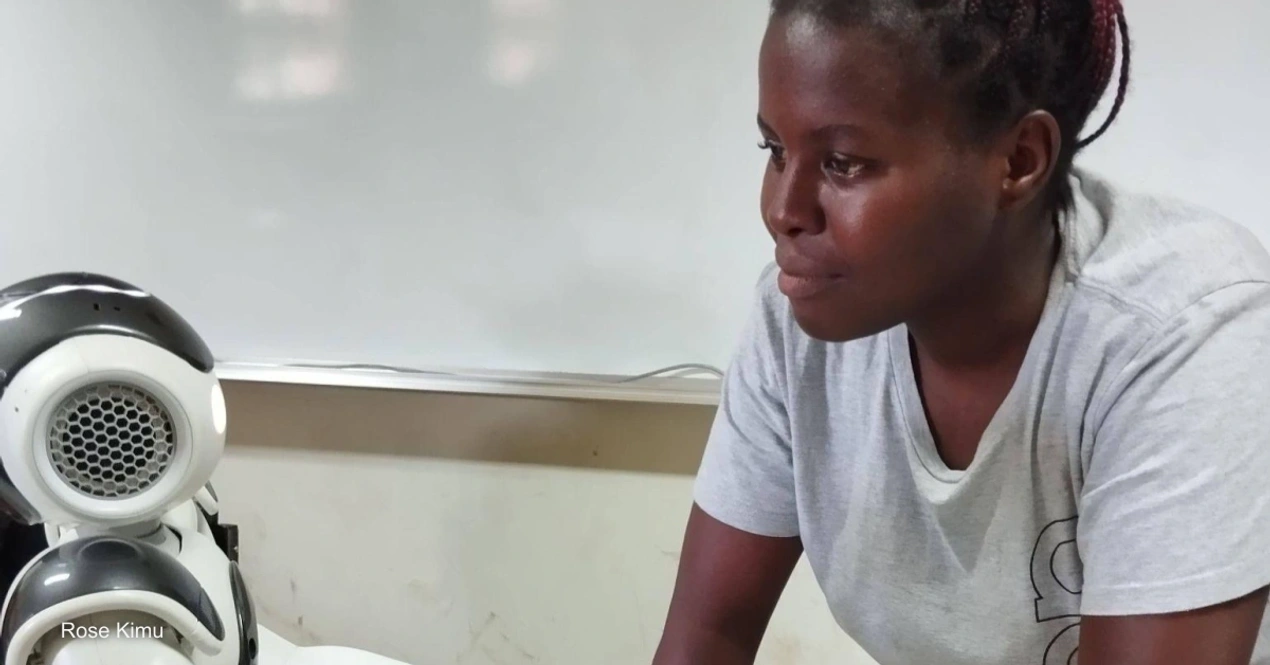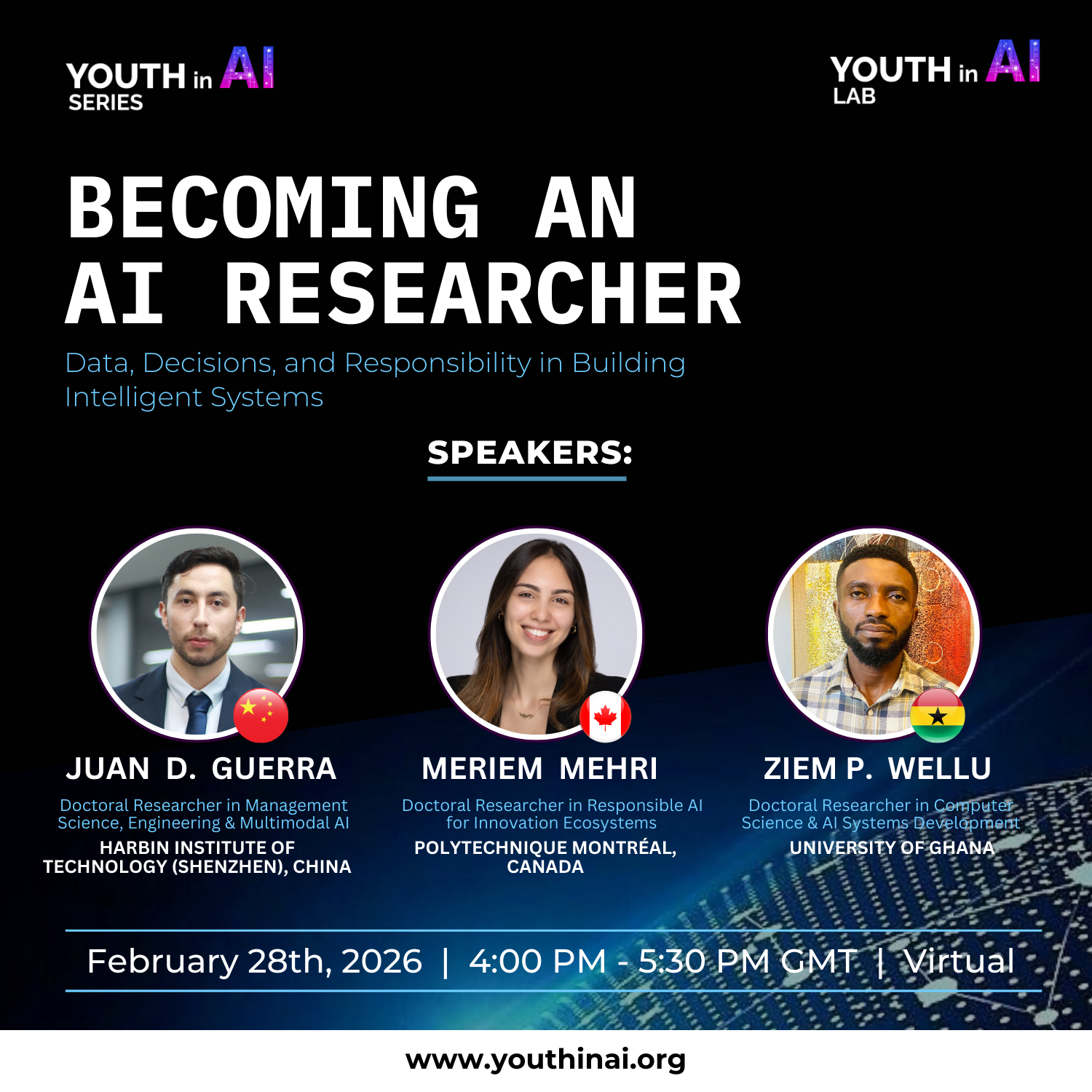By 2035, more young people from Africa will be entering the workforce each year than from the rest of the world’s countries combined. Such a demographic…
April 17, 2025
May 11, 2025
In a bold call to action, Misbawu Abdallah, President of Africa Youth in AI, has urged the government of Ghana to develop Artificial Intelligence…
June 1, 2025
This is an open letter to the African ecosystem: African governments, heads of state, ministers, philanthropy, private sector, innovators, educators, and young people, as…
July 7, 2025
In a milestone event held at the Google Research Office in Accra, Youth in AI officially launched the Youth in AI Lab, a visionary…
February 11, 2026
YOUTH in AI SERIES: Title: Becoming an AI ResearcherTheme: Data, Decisions, and Responsibility in Building Intelligent Systems.When: February 28, 2026Where: Virtual via MeetRSVP: https://forms.gle/5XESAt6NS1MxsuESA…




